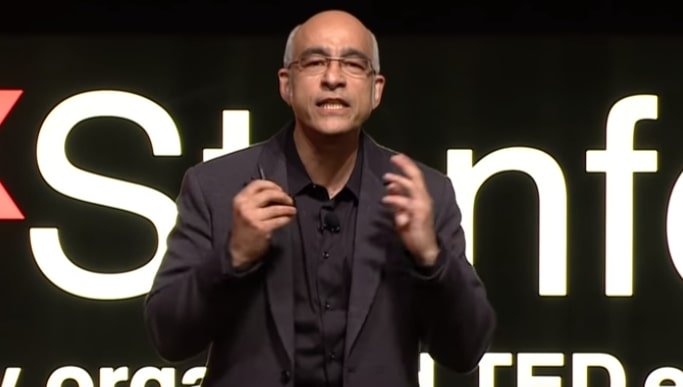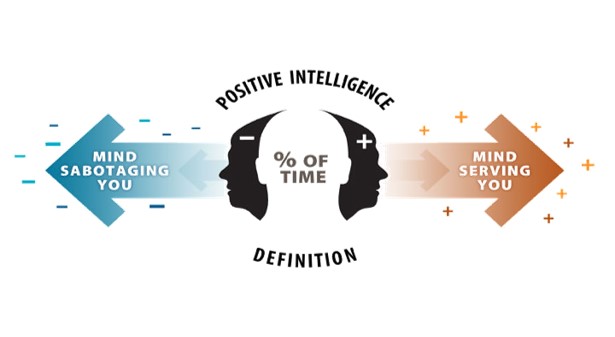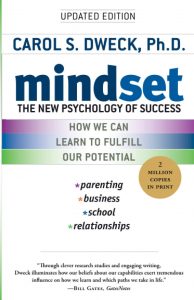Article Summary:
Many of us have limiting beliefs that detract from our success and happiness. Here we address where they come from and how to change them.
+++
Do you have limiting beliefs about yourself that are holding you back? Chances are that you do, even if you’re highly capable and successful. Most people do, even if they’re not aware of it, and it’s a bigger problem than most people think.
Limiting beliefs are judgments about ourselves that restrict us in some way. They prevent us from achieving our aims and from becoming what we want. In essence, they’re stories we tell ourselves, and they ain’t pretty because they’re a form of negative self-talk and self-sabotage.
“Beliefs are the hidden scripts that run our lives.”
-Marie Forleo, entrepreneur
Examples of Limiting Beliefs
Our limiting beliefs generally tell us what we’re bad at or what we can’t do (or can’t do well). Beneath them are assumptions that there’s something wrong with us or that things are too difficult for us.
When we’re under their spell, we may believe that we are:
- not worthy of love (perhaps the most debilitating limited belief of all)
- damaged goods (because, for example, we’re out of a job or in a rut, or because our parents may be gone or divorced)
- a failure
- too busy or too old to do the thing we want (such as try a new career path, start dating again, learn a new skill, go back to school, start a venture, or pursue our dreams)
- not smart, attractive, strong, or talented enough
- not as good as our siblings, classmates, or colleagues (note the comparison trap)
- not cut out to be a leader or entrepreneur
- not creative, artistic, confident, our outgoing enough
- bad at certain things (e.g., public speaking, writing, math, money, etc.)
- too tall or too short
- never going to be successful (or as successful as we hope)
- not ready for what we need or want to do
- stuck because things are beyond our control
- lacking what it takes (e.g., knowledge, skills, experience, degree, credential)
- too young to have influence
- so far behind others that we’ll never catch up (as if life were a race)
- fixed in our intelligence, abilities, and talents (what Stanford psychologist Carol Dweck calls a “fixed mindset”)
Most of us have more than one limiting belief at work and, in some cases, several. These beliefs affect our choices and actions.
We may have a limiting belief that we can’t leave a bad job or bad marriage because we’ve put too much time into it already and we won’t be able to get a better situation in the future. Or a limiting belief that we can’t quit law school or medical school because our parents won’t approve. Or that we can’t leave a prestigious or well-paying career to pursue something more meaningful, because we’ll lose respect. (See my article, “The Trap of Caring Too Much about What Other People Think.”)
Often, there are logical leaps we take with these limiting beliefs. If we embarrassed ourselves once in a high school assembly, we adopt the premature belief that we’re terrible at public speaking. If we got a bad grade in a tenth-grade writing class, we conclude that we’re a bad writer.
“Argue for your limitations, and sure enough they’re yours.”
-Richard Bach, writer
These leaps may be understandable emotionally, but they fall short logically. There are all sorts of possibilities at work in such situations. First, nobody starts out being good at anything. Maybe we were having a bad day when the assembly took place. Or the writing teacher was off base. Plus, we can all learn, develop, and grow into new skills and abilities if we apply ourselves diligently and systematically.
Where Limiting Beliefs Come From
Where do our limiting beliefs come from? Many sources, it turns out, including our:
- parents and our childhood (including well-meaning but ultimately harmful praise only for things like our intelligence, looks, talent, or performance and not our effort, focus, resilience, and improvement)
- peers and their comments and judgments about us (which we often blow out of proportion)
- past experiences (and the false lessons we can extract from them)
- teachers
- coaches
- mentors
- society and its common assumptions about what constitutes success
- the media, movies, celebrities, influencers, and social media (with their incomplete and misleading portrayals of what life is like for people)
Together, these can mix into a toxic cocktail of harmful notions about ourselves.
The Effects of Limiting Beliefs
How do our limiting beliefs affect us? They can have profound and lasting effects on our life, work, relationships, and leadership.
Here are ten of the most common effects of limiting beliefs:
- lead us to doubt ourselves
- lower our confidence
- keep us from doing important things (such as going for a dream job or asking someone out)
- inhibit our creativity
- cause us to reject good options or lose opportunities because we feel we’re unworthy or incapable
- keep us in a state of fear, stress, anxiety, or shame
- prevent us from approaching or reaching our potential
- keep us from achieving success
- reduce our happiness and wellbeing
- prevent us from crafting the life we want
When we’re at the mercy of our limiting beliefs, we feel mostly weak, undeserving, unworthy, or incompetent, or just not good enough. And we fail to access our strengths, gifts, resilience, and better angels. Those effects can compound over time into a black hole of negativity that won’t let any of our light escape.
“Every belief has a consequence. Long term, your beliefs determine your destiny.”
-Marie Forleo, entrepreneur
Why Limiting Beliefs Are So Hard to Overcome
Limiting beliefs can be tricky because they’re loaded with emotions, fear, and anxiety. They hijack our brains, moving our cognitive activity away from our more prefrontal cortex (where we do our most advanced thinking) and down into our more reactive limbic system.
Limiting beliefs are often subconscious and deeply engrained in our psyche. Although they originate in our minds, we actualize them through our behavior and habits, creating a vicious cycle.
It gets worse. In some cases, our unconscious minds may prefer limiting beliefs over the effort and uncertainty of trying to change them because at least the beliefs familiar, which can provide comfort of sorts. This part of our brain prefers to stick with the “devil we know” versus the stress, pressure, risk, and uncertainty of something new and different (even if the latter may turn out to be much better). If our amygdala values survival above all else, why not stick with what we know and avoid the fear state that comes with change? It craves certainty and familiarity, even when those states lead to complacency and mediocrity.
Our brains are wired to conserve energy and protect us from pain and danger. This can lead to some lazy default behaviors such as staying in our comfort zone and avoiding risk.
Sometimes we’ve had a limiting belief for so long that it feels like it’s beyond questioning or reproach. It feels like it’s an aspect of reality itself, as opposed to the dubious doling of self-sabotage that it is. It can feel like the truth, even though it’s a despicable lie.
How to Overcome Limiting Beliefs
“When you change a belief, you change everything…. All beliefs are a choice and choices can be changed….
You always have more power than you think. Your mind is the most extraordinary tool you have to shape your reality.” -Marie Forleo, entrepreneur
Now that we’ve seen what limiting beliefs are, where they come from, and why they’re so hard to overcome, the next question is: What can we do about them? How can we overcome our limiting beliefs?
Here are the most effective ways to begin overcoming our limiting beliefs:
Understand that all results begin with beliefs, because our beliefs turn into thoughts that drive our actions.
Imagine how much more we could accomplish and how much more happiness and fulfillment we could have if we transformed our limiting beliefs into beliefs that supported us.
Begin noticing the tone of our beliefs—and whether they’re positive or negative, whether they’re supportive or harmful. We need to get better at listening to the negative thoughts in our head, paying attention to our negative self-talk. Notice whether our beliefs are driven by excuses, blaming, or victimhood, versus taking full responsibility and being creative, resourceful, and solution oriented. Be vigilant and keep watching out for cases where we may have unconscious limiting beliefs.
Identify the source of our limiting beliefs, if possible (e.g., comments from a parent, teacher, or boss, or a bad experience).
Recognize that it’s our unconscious brain that’s holding on to the limiting beliefs, not our conscious mind. With that realization, we can change our perception and then our behavior.
Flip our beliefs from unconscious and limiting to conscious and affirming so they don’t continue on autopilot without our awareness, and so they lift us up instead of holding us down.
Reframe the limiting beliefs. A simple way to reframe a limiting belief is to add “yet” to it. For example:
- The limiting belief, “I can’t do this,” becomes, “I can’t do this yet” (or “I haven’t yet figured out how to make this work”).
- The limiting belief, “I’ve never led anyone before and I don’t know what I’m doing,” becomes, “I’ve helped lots of people figure things out and I have good people skills and lots of valuable experience to draw upon.”
- The limiting belief, “I’m not good enough to manage this project well,” becomes, “I’m committed, hard-working, and capable, and I have what it takes to figure this out.”
Choose one limiting belief to begin working on.
Write down our limiting beliefs about that topic area, also noting how they’re holding us back.
Then, interrogate the limiting belief. What if it’s not true?
Assess the accuracy of our limiting belief(s) by gathering data, from ourselves and others.
Challenge our limiting beliefs constantly.
Prove our limiting beliefs wrong by taking courageous actions that refute the phantom belief and its underlying assumptions. Crush our loathsome limiting beliefs with our incredible capabilities and awesomeness.
Create new beliefs that are beneficial, in doing so changing our self-talk so that it’s positive or supportive.
Strengthen our new beliefs via positive actions that reinforce the new beliefs. (Also consider affirmations and/or visualization.)
Develop a mantra that counters each major limiting belief, replacing it with something better. Examples: “Born ready.” “You got this.” “Everything is figureoutable.” (credit to Marie Forleo for this one)
Seek help from a coach, mentor, or small group that’s supportive and committed to our best interests.
Summary
Limiting beliefs are judgments about ourselves that restrict us in some way, a nefarious form of self-sabotage. They’re hard to overcome because they’re overloaded with emotions, they hijack our brains, and they’re often subconscious.
We have the power to overcome our limiting beliefs, especially by bringing them into our conscious awareness, interrogating and reframing them, and adopting new beliefs that support instead of sabotaging us.
Sometimes, overcoming our limiting beliefs is a prerequisite for crafting a good life.
“You begin to fly when you let go of self-limiting beliefs
and allow your mind and aspirations to rise to greater heights.”
-Brian Tracy
Reflection Questions
- What limiting beliefs do you have?
- How are they holding you back?
- What will you do about them, starting today, and which one will you address first?
Tools for You
- Quality of Life Assessment so you can discover your strongest areas and the areas that need work, then act accordingly.
- Traps Test (Common Traps of Living) to help you identify what’s getting in the way of your happiness and quality of life
- Personal Values Exercise to help you clarify what’s most important to you
- Strengths Search Tool to help you identify your core strengths and integrate them more into your life and work
Related Articles
The trap of limiting beliefs doesn’t exist in a vacuum. It’s related to several of the other common traps of living. Here are several articles addressing related traps:
- “The Mental Prisons We Build for Ourselves”
- “Breaking the ’Trance of Unworthiness’”
- “Trap of Blaming Others”
- “Getting to the Root Causes of Things: Why and How”
- “The Power of Taking Full Responsibility”
- “The Trap of Caring Too Much about What Others Think”
- “Your Leadership Mindset”
- “Trap of Comparison”
- “Feeling Behind? It May Be a Trap”
- “The Power of Reframing to Change Our Outlook“
- “Getting Good at Asking for Help“
- “How to Stop Our Negative Self-Talk: 15 Practices“
Additional Resources
- Carol Dweck’s book, Mindset: The New Psychology of Success
- Carol Dweck’s TEDx talk on “The Power of Believing You Can Improve”
- Shirzad Chamine’s book, Positive Intelligence
- Shirzad Chamine’s TEDx talk, “Know Your Inner Saboteurs”
- Apollos Hester’s inspiring video about belief and motivation

Postscript: Inspirations on Beliefs
- “No matter what you’re facing, you have what it takes to figure anything out and become the person you’re meant to be.” -Marie Forleo
- “The size of your success is determined by the size of your belief.” -David J. Schwartz
- “Since a leader cannot rise above his thinking, he must assault his limiting beliefs daily through reading, listening, and associating.” -Orrin Woodward
- “In order to change ourselves, we must first believe we can.” -Marie Forleo
- “Don’t limit yourself. Many people limit themselves to what they think they can do. You can go as far as your mind lets you. What you believe, remember, you can achieve.” -Mary Kay Ash
- “I’m not interested in your limiting beliefs; I’m interested in what makes you limitless.” -Brendon Burchard
- “Learning too soon our limitations, we never learn our powers.” -Mignon McLaughlin
- “If you accept a limiting belief, then it will become a truth for you.” -Louise Hay
- “Beliefs have the power to create and the power to destroy. Human beings have the awesome ability to take any experience of their lives and create a meaning that disempowers them or one that can literally save their lives.” -Tony Robbins
- “Courage is your natural setting. You do not need to become courageous, but rather peel back the layers of self-protective, limiting beliefs that keep you small.” -Vironika Tugaleva
- “Do the uncomfortable. Become comfortable with these acts. Prove to yourself that your limiting beliefs die a quick death if you will simply do what you feel uncomfortable doing.” -Darren Rowse
- “It’s the repetition of affirmation that leads to belief. And once that belief becomes a deep conviction, things begin to happen.” -Muhammad Ali
++++++++++++++++++++++++++++++
Gregg Vanourek is a writer, teacher, & TEDx speaker on personal development and leadership. He is co-author of three books, including LIFE Entrepreneurs: Ordinary People Creating Extraordinary Lives (a manifesto for living with purpose and passion) and Triple Crown Leadership: Building Excellent, Ethical, and Enduring Organizations (a winner of the International Book Awards). Check out his Best Articles or get his monthly newsletter. If you found value in this article, please forward it to a friend. Every little bit helps!











